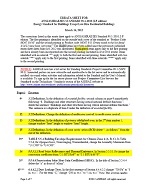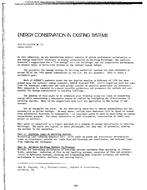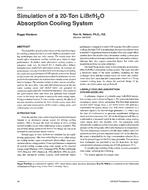Recent experiments in central Florida have examined the impact of reflective roof coatings on air-conditioning energy use in tests on monitored homes. An initial study was conducted in 1991 in a residence with a well-insulated R-25 (RSI 4.4) attic. After application of the reflective roof coating, daily air-conditioning energy was measured to decrease by approximately 10%. More detailed experiments for collecting data on time-of-day air-conditioning electrical demand were performed on two less-insulated homes in Cocoa Beach, Florida, in the summer of 1992. Site 1 with approximately R-11 (RSI 1.9) ceiling insulation and Site 2 with a flat roof with no insulation. Reflective coatings were applied to the roofs of both residences in mid-summer after a three-week period of monitoring during which building temperatures and air-conditioning energy use were recorded every 15 minutes. Analysis revealed substantial reductions in space-cooling energy use in both homes. Air-conditioning energy use was reduced by approximately 25% at Site 1. Utility coincident peak demand between 5 and 6 p.m. was reduced by 28%. Cooling energy savings at the uninsulated Site 2 home were approximately 43% and the coincident peak reduction was 38%.
KEYWORDS: measuring, domestic, cooling, space cooling, energy conservation, roofs, solar control films, paints, air conditioning, housing, monitoring, performance, cooling load, temperature, attics, experiment, electricity consumption, comparing, summer, tropics, subtropics, deserts
Citation: ASHRAE Trans. 1994, Vol.100, Part 2, Paper number 3788, 36-49, 10 figs., 5 tabs., refs.
Product Details
- Published:
- 1994
- File Size:
- 1 file , 3.4 MB
- Product Code(s):
- D-17366


